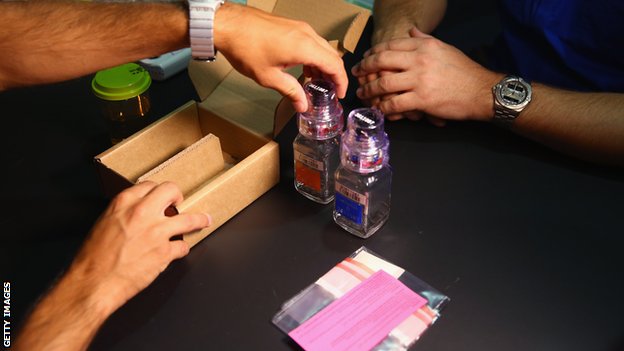The World Anti-Doping Agency (Wada) is to begin an “urgent” investigation into allegations of widespread doping in athletics.
The Sunday Times published data from 5,000 athletes, which it says reveals an “extraordinary extent of cheating”.
Athletics’ governing body the International Association of Athletics Federations (IAAF) said the claims were “sensationalist and confusing”.
Wada’s investigation will be led by its independent commission.
Sir Craig Reedie, Wada president, said his organisation “deplores the manner in which the data was obtained” and had concerns over athlete confidentiality.
The Sunday Times and German broadcaster ARD/WDR obtained access to the results of 12,000 blood tests between 2001 and 2012 as part of their investigation.
Reedie added that it would be “irresponsible and potentially libellous” to imply that any athlete on the database had been involved in doping.
“I ask that any athlete, or anti-doping organization, concerned that their rights are being eroded or inappropriately challenged, refer those concerns to the commission,” he said.
Some of the data obtained pre-dates the 2009 introduction of the Athlete Biological Passport (ABP), an electronic record of athletes’ doping tests.
Wada director general David Howman said this data “could not possibly be considered doping, legally or otherwise”.
“In addition, atypical blood data, which may be within this database from 2009-2012, is not necessarily indicative of doping,” he added.
Lord Coe, an IAAF vice-president, said the introduction of blood passports had “chased some of the highest-named athletes out of our sport”.
Coe has said the allegations were a “declaration of war” on athletics and believes it is time to “come out fighting” to protect the sport’s reputation.
In a statement, the IAAF said it “warmly welcomed” Wada’s investigation and confirmed it has agreed to send its full database with pre-2009 data to the organisation.




















